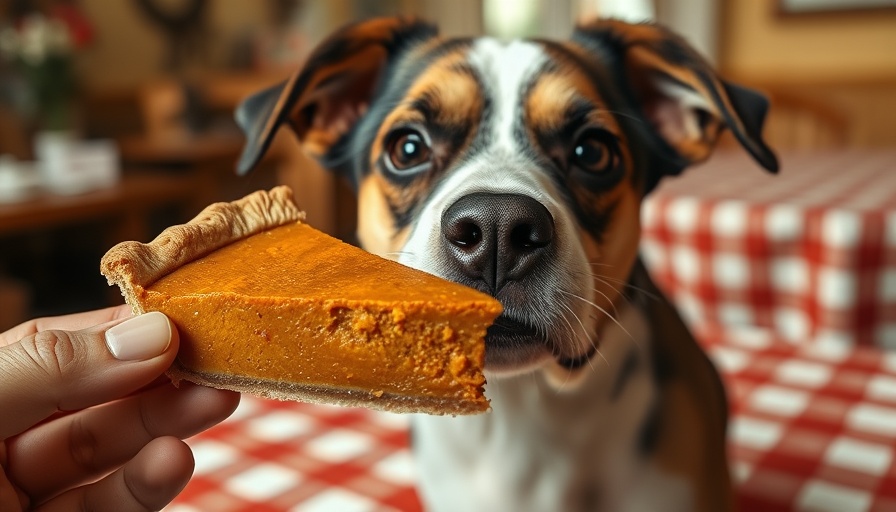
Can Dogs Enjoy the Benefits of Pumpkin?
As pet parents, we often find ourselves grappling with questions about our furry friends' diets. One query that pops up frequently is, can dogs eat pumpkin? The answer is a resounding yes! However, similar to all human foods we consider sharing with our pets, there are essential things to keep in mind. Let’s dive deeper into the pumpkin pantry of possibilities for our canine companions!
A Nutritional Powerhouse for Dogs
Pumpkin is not only a seasonal favorite—often associated with pies and seasonal lattes—but it also packs a nutritional punch. When prepared correctly, plain, cooked pumpkin and 100% canned pumpkin (the kind without added sugars or spices) are wonderful additions to a dog’s diet. Rich in fiber, vitamins A, C, and E, as well as minerals like potassium, pumpkin can support digestion, help regulate blood sugar, and even promote healthy anal gland function.
The American Kennel Club endorses the health benefits of pumpkin, especially for dogs facing mild digestive issues such as constipation or diarrhea. The soluble fiber in pumpkin helps to firm up loose stools while also easing constipation, making it a fantastic, natural remedy right from your kitchen!
The Do's and Don'ts of Feeding Pumpkin to Dogs
While pumpkin can be beneficial, it’s crucial to avoid certain forms. Always stay away from raw pumpkin, as it is tough for dogs to digest and can pose choking hazards. Carving pumpkins, often associated with Halloween, are edible but should be given cautiously due to their stringy texture. Additionally, pumpkin pie filling should be off the menu—loaded with sugar and spices like nutmeg and cloves, it can cause digestive problems and even toxicity in dogs.
For a homemade pumpkin dish, opt for sugar pumpkins, also known as pie pumpkins. Their sweeter taste and smoother texture make them an excellent choice for cooking!
Pumpkin Seeds: A Tasty Treat or a Health Risk?
An interesting aspect to consider is pumpkin seeds. Canines can eat these nutrient-rich seeds, which are known for their zinc, magnesium, and copper content. You can offer them whole or shelled, although moderation is key to avoid digestive upset. Just be sure they are prepared without any salts or spices, maintaining a safe and healthy snack.
Incorporating Pumpkin into Your Dog’s Diet
Adding pumpkin to your dog’s routine can be as simple as mixing in a teaspoon of pureed pumpkin into their meal, making it a delightful surprise! Not only does it add flavor, but it enhances their diet with those necessary nutrients. Many commercial dog foods now include pumpkin as an ingredient, indicating its growing popularity among pet food manufacturers.
Conclusion: Why You Should Give Pumpkin a Try
So next time the fall season rolls around, or if you have a leftover sugar pumpkin, consider sharing a bit with your pooch. It’s a delicious way to provide a nutritional boost while keeping mealtime fresh and exciting! However, always check with your veterinarian before introducing any new foods into your dog's diet to ensure it’s safe and suitable for their individual needs.
Now, as a devoted pet parent, you have the tools and knowledge to incorporate pumpkin wisely into your dog's diet. Help your pups enjoy the benefits of this nutritious treat while keeping them happy and healthy!
 Add Row
Add Row  Add
Add 




 Add Row
Add Row  Add
Add 


Write A Comment